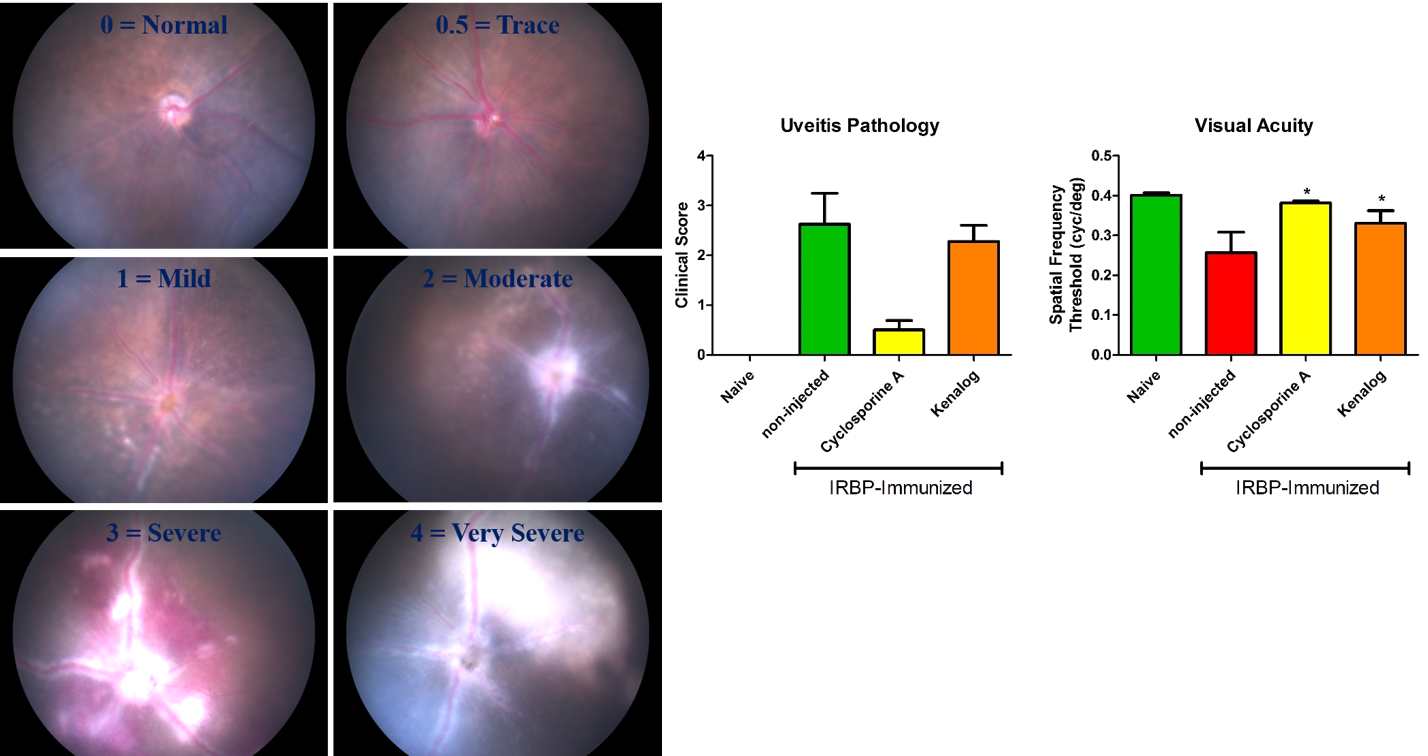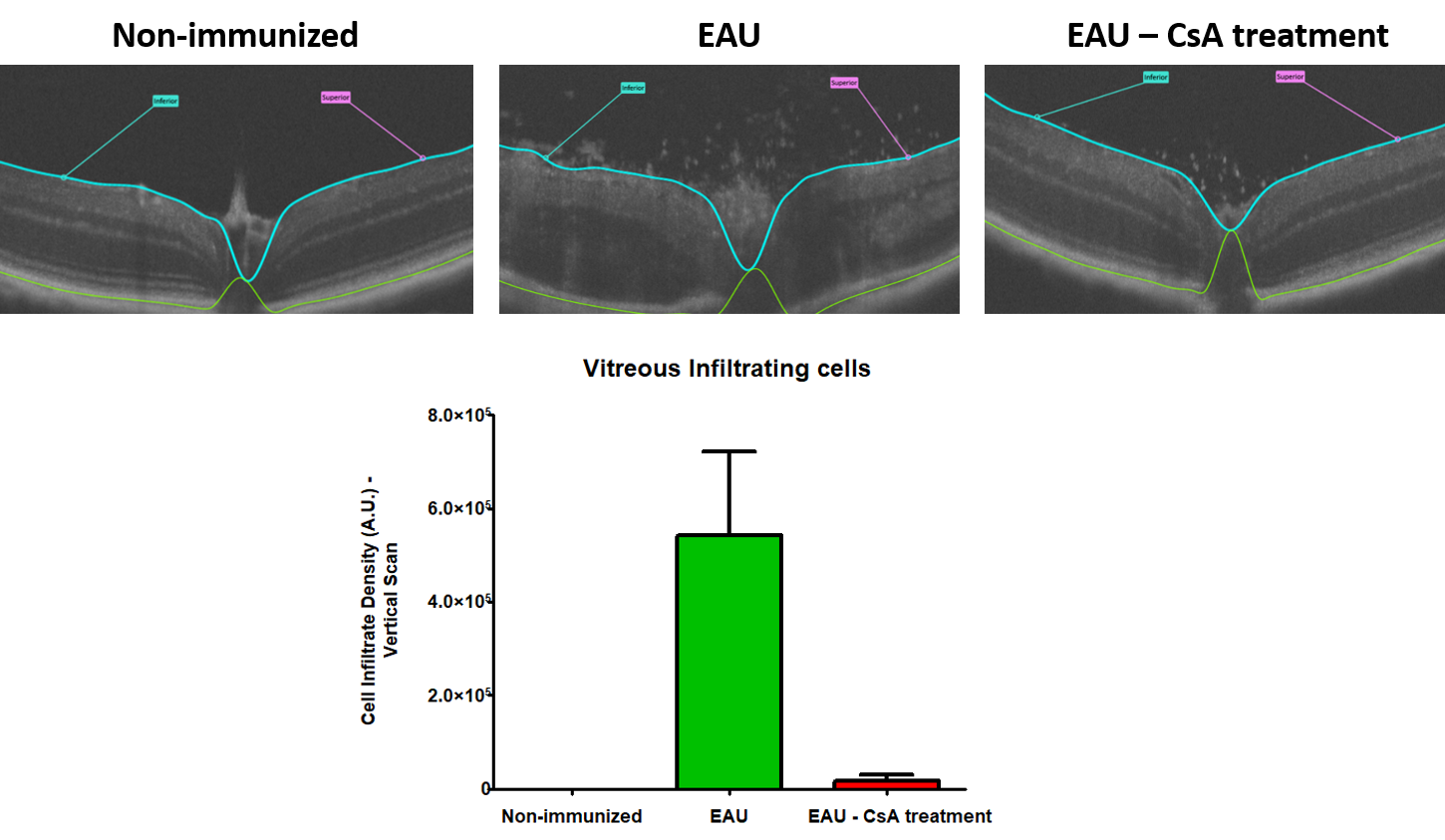Experimental Autoimmune Uveitis
Uveitis can affect individuals of all ages, genders, and genetic backgrounds, and represents a major public health concern as one of the leading causes of vision loss. Uveitis is an inflammatory disease of the uvea and can be broadly separated into “infectious” and “non-infectious” subtypes. Non-infectious uveitis is often coincident with systemic autoimmune disorders with immune responses triggered by ocular antigens. Current treatment options include corticosteroids and immunosuppressive drugs; however, these therapies are less than ideal due to multiple systemic side effects and insufficient efficacy in decreasing the severity of the disease.
At EyeCRO, experimental autoimmune uveitis (EAU) is induced in B10.RIII mice by immunization with the human IRBP peptide. The presence of this peptide elicits a transient CD4+ T-cell mediated ocular autoimmune response, with a peak of the disease occurring from approximately 11 days to 18 days post-immunization. The disease is monitored by measuring the optokinetic tracking (OKT) reflex to monitor visual function, funduscopic imaging to monitor ocular inflammation, and optical coherence tomography to quantify cell infiltrates into the vitreous. Post-terminal analysis can include histology, multiplex analysis of ocular cytokine levels, and FACS analysis of T-cell induction.


